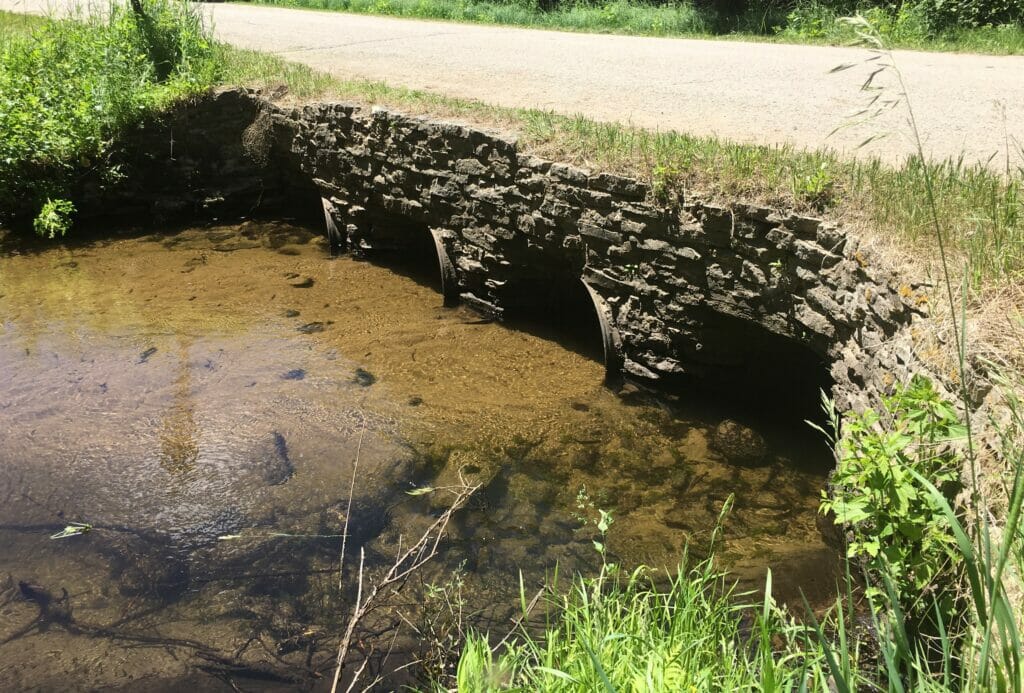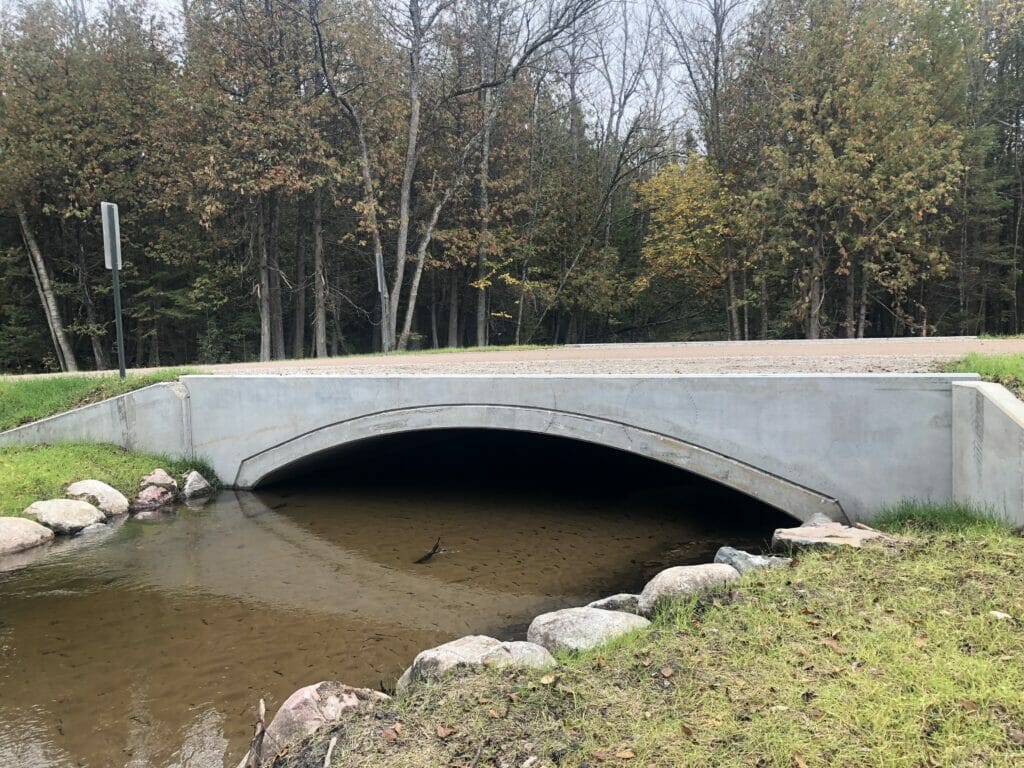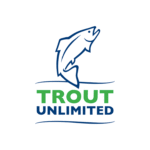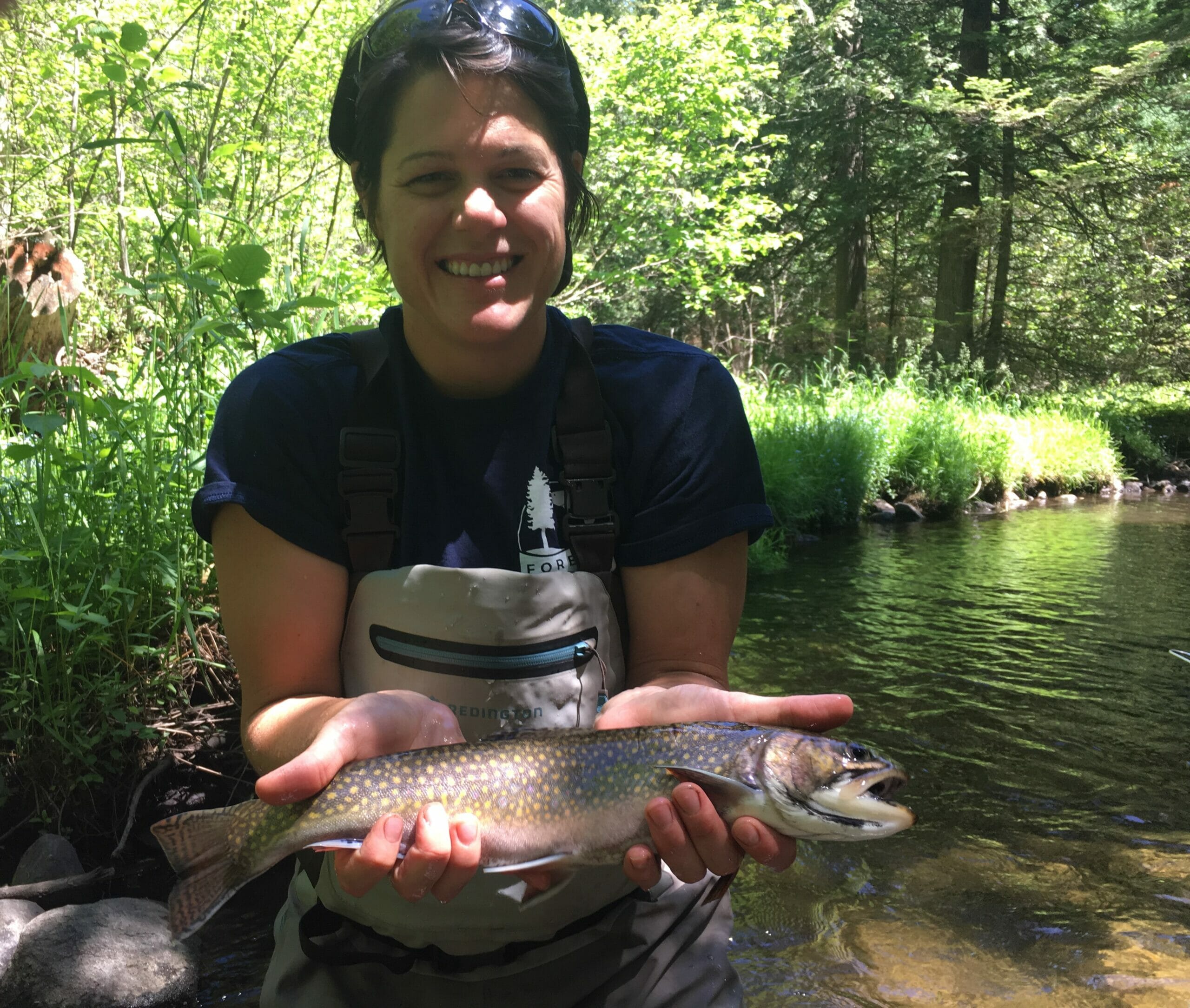By Chris Collier
Working with the Town of Beaver and Wisconsin Department of Natural Resources, Trout Unlimited recently helped replace a fish passage barrier on the North Branch Beaver Creek located in the middle of a state fishery area.
Surveys at the site indicated fish passage and flood risk concerns associated with the existing, four-culvert road-stream crossing and fishery data showed healthy brook and brown trout populations in the area.

A project that fits our priorities as closely as this one often makes it easy for TU to justify bringing funding to the table, but this project was different. The project partners already had funding in place to replace the crossing. What they needed was help designing a crossing that would reconnect, restore, and protect the stream’s coldwater habitat.
So, in 2018 TU staff helped shoot survey points to design a new crossing and then created design options for a new structure that would improve coldwater habitat.

Fast-forward to 2020 and the new crossing is complete. Replacing the old crossing with a single-span structure improves fish passage, mitigates flood risks, and improves overall stream health.
Projects like this show the important role TU plays by providing a variety of services. Funding is often the most difficult and limiting resource with our projects, but it’s important to be ready for the instances where it isn’t.
Chris Collier is Trout Unlimited’s Stream Restoration Manager in northern Wisconsin, where TU has helped reconnect over 110 miles of coldwater habitat since 2016. Feel free to contact him at chris.collier@tu.org with any questions about our work in Wisconsin’s Great Lakes watersheds.



